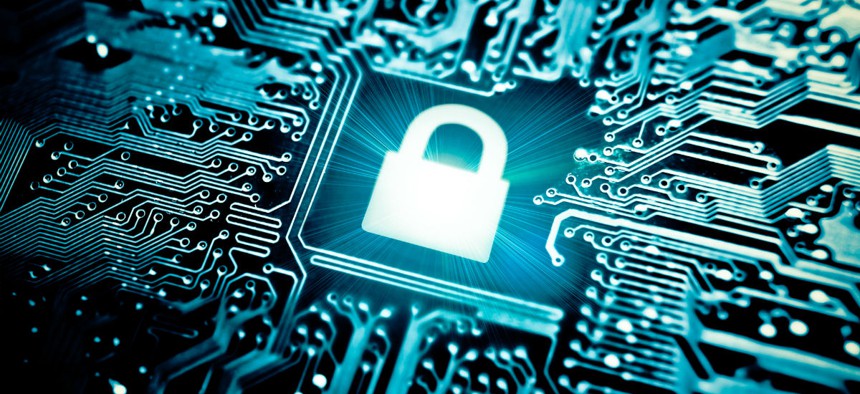Lawmaker: 'Encryption is Going to be a Big Issue in 2016'

wk1003mike/Shutterstock.com
Fueled by recent events and the 2016 election, expect the debate over encryption to heat up next year.
The thorny debates around encryption, national security and privacy likely aren’t going anywhere and will probably heat up next year.
That’s according to Rep. Will Hurd, R-Texas, who chairs the House Oversight and Government Reform’s technology subcommittee.
“One of the biggest issues we’re going to be dealing with in 2016 is the issue of encryption and this is intimately tied to privacy,” said Hurd, a former agent for the Central Intelligence Agency.
Hurd, speaking on information technology at an event hosted by Nextgov last week, said he favors strengthened encryption. That effectively puts Hurd in opposition to some law enforcement leaders like CIA Director John Brennan and FBI Director James Comey, who’ve advocated for the installation of “backdoors” into devices that would give the government the opportunity to skirt encryption.
A multitude of tech companies and privacy experts, however, believe any encryption-weakening legislation would do more harm than good.
“What we do know is that strong encryption is crucial to allow political organizers, government officials, and ordinary people around the world to protect their security, privacy and safety from criminals and terrorists alike,” Electronic Frontier Foundation Executive Director Cindy Cohn recently told Defense One’s Patrick Tucker. “Any ‘backdoor’ into our communications will inevitably (and perhaps primarily) be used for illegal and repressive purposes rather than lawful ones.”
President Barack Obama hasn’t firmly committed to choosing a side in the encryption debate but has offered hints he might favor law enforcement’s arguments.
To Hurd, who formerly carried out offensive cyber operations in the Middle East before being elected to Congress in 2014, building backdoors into U.S. industry products and platforms has the potential to harm national security and weaken the economy.
“My fundamental belief is that encryption is important for our national security and important for our economy and we need to do everything we can to strengthen it,” Hurd said. “We also need to be working with law enforcement so we can help solve challenges.”
Hurd suggested alternative methods for law enforcement to collect intelligence on suspects without the need for built-in backdoors. As encryption technologies continue to grow in popularity in today’s post-Edward Snowden, privacy-conscious culture, Hurd was clear he doesn’t want law enforcement hung out to dry, either.
“If you know two people are talking on an encrypted channel, you already know a whole lot of information about those individuals,” Hurd said. “There are opportunities to leverage that knowledge to help law enforcement do what it needs to do. We need to do everything we can for law enforcement.”
While Republican presidential candidates have outdone each other downplaying the importance of civil liberties and Democratic front-runner Hillary Clinton recently called for a “Manhattan-like project” to break encrypted communications, the news last week regarding tech giant Juniper Networks ought to serve as a reminder for how dangerous backdoors can be.
Juniper on Dec. 17 disclosed security vulnerabilities on its widely used systems. It was particularly troubling news for U.S. officials, as the breach involved hackers installing backdoors into systems, including federal networks, that may have allowed attackers to spy on supposedly encrypted government communications.
(Image via wk1003mike/Shutterstock.com)






